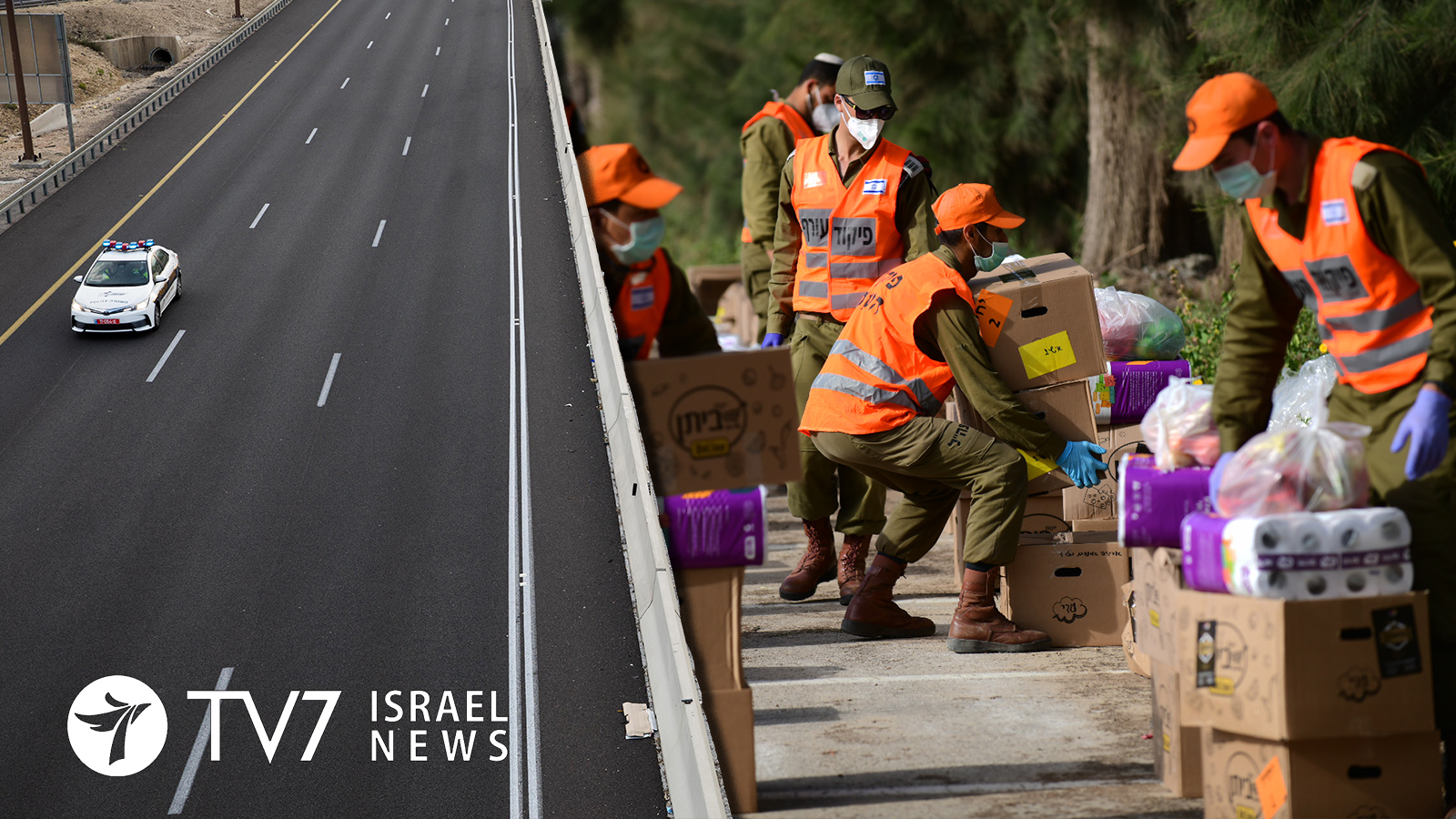The annual Biblical festival of Passover commemorates the ancient Israelites journey from slavery in Egypt to freedom in the Holy Land, as described in the Book of Exodus.
In what has become a core tradition of Judaism, families come together to enjoy a festive Seder meal that includes symbolic food, the shared-reading of a text known as the Haggadah and the singing of songs.
97% of Israelis Jews were found to either host or participate in Passover Seders according to a Jewish People Policy Institute survey of 3,000 respondents. But that poll was taken in 2018, long before the profound impact of the coronavirus.
Israelis have been banned from leaving their homes during the first night of Passover as part of a general lockdown to prevent further spread of the disease, transforming the quintessential shared holiday into a solitary experience for many. As announced by Prime Minister Benjamin Netanyahu, “Every family will have the Passover seder on its own” attended “only with the immediate family members who are now with you at home.” The Israeli leader acknowledged the decision was “very onerous,” but added there “is simply no choice” out of a “deep responsibility for the public welfare.”
The nationwide lockdown has been codenamed “Operation Spring Protection” by Israeli police, who will strictly enforce all of the actions on the ground. According to a statement to TV7 from the Police Foreign Press Spokesman, “It is forbidden to leave one’s house, or to be in any public places such as parks or open areas” and “each family will stay at home for the festival only with their close family.”
There has been an expansion of “operations and mobilization of units in all areas of the country, road blocks have been set up preventing people from traveling from city to city, neighborhoods are closed off inside cities to prevent the public from moving around unnecessarily and against the laws and regulations that are being implemented,” according to the official statement, which underscored that police units are “working closely together with IDF personnel and border police who are involved in the national security and health operation” taking place “on the ground, from the air & with police helicopter units, also using drones and other technology.“
A general curfew is in effect from 3 PM on Wednesday, April 8 until 7 AM Thursday, April 9. During this time, people are forbidden to leave home even to purchase food.
Ahead of the holiday, shoppers flocked to the nation’s grocery stores for the preparation of their Seders and stock up on general supplies. Many had to wait for hours outside due to restrictions on the number of customers permitted to be inside at the same time, while standing in line to pay the required two meters apart.
Jerusalem resident Sabrina Baruchi told Reuters that this will be the first time she would be spending the holiday with only her husband, and that even though she has been left feeling “uneasy,” that she understands “this is the way the situation is, and we’re going to doe the best to enjoy the Chag (Hebrew for “holiday”) as best as possible.”
Some areas, including the city of Bnei Brak, were declared closed restricted zones due to a severe COVID-19 outbreak, and dependent on the delivery of 1,000 tons food by the Israeli Defense Forces. Soldiers also brought essential foodstuffs to homes of elderly, impoverished and disabled citizens unable to leave their homes.
During Passover, Jews eat “matza,” or unleavened bread; symbolizing the haste of the Israelites’ flight from ancient Egypt which left no time for the rising of baked bread. Israel’s Chief Rabbis David Lau and Yitzhak Yosef authorized alteration of the pre-holiday tradition of burning of “hametz” (leavened products) to either flushing it down toilets or simply disposing of it in the garbage after it has been rendered inedible by being doused with bleach.
Social media is being heavily relied upon this holiday season. Israel’s Chief Rabbinate permitted the symbolic selling of one’s “hametz” via its website. Many people opted to place their grocery orders online for home delivery, while others opted to order online pre-packaged Seder meals.
Passover is a peak time of international travel for Jews. With the cancelation of flights and closure of borders, many families are using online platforms to bridge the physical distance between loved ones. Family Seders are being conducted in video chats on Zoom and other online platforms. As a means to introduce a bit of levity, author Nancy Star wrote an article published on The Forward news media organization, entitled: “I can lead the seder. I just need someone to teach the 90-year-olds Zoom.”
The Keshet 12 network is broadcasting “The Great Israeli Seder Live” at 7:30 PM Wednesday night, as a means to lighten the spirits of sole viewers. The participants include President Reuven Rivlin, Yisrael Beiteinu leader Avigdor Liberman and Yesh Atid Chairman Yair Lapid, in addition to a number of celebrity actors, comics, journalists and television personalities.
In a message of comfort for those setting a table for one this Passover 2020, Tzvi Freeman posted the following on Chabad.org:
“On the night of Pesach, no Jew sits alone. We all sit at one long table. Your parents are there, your grandparents, all the Jewish people you’re related to (which is all of them) sit with Moses at the head.”
Freeman also reminded readers: “On the night of the very first Passover, each family stayed in their own home. Like this year, no one was allowed to step outside. At midnight, a plague swept through the land, while in each house the people sat up in excited anticipation of the morning. They ate roasted lamb with matzah and bitter herbs, and told stories of their ancestors, and of their noble heritage.
The next morning, all the Jewish people left the bondage of Egypt for the Promised Land,” concluding with the traditional last words of each Seder:
“Next year in Jerusalem!”
– By Erin Viner
